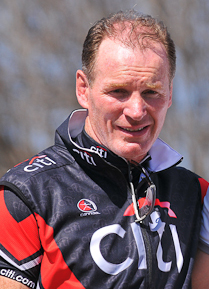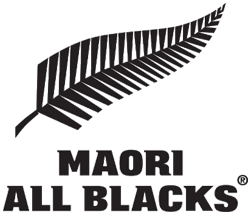
The New Zealand national rugby union team, commonly known as the All Blacks, represents New Zealand in men's international rugby union, which is considered the country's national sport. Famed for their unmatched international success, the All Blacks have often been regarded as the most successful sports team in human history.

The Australia national rugby union team, nicknamed the Wallabies, is the representative national team in the sport of rugby union for the nation of Australia. The team first played at Sydney in 1899, winning their first test match against the touring British Isles team.

The Wales national rugby union team represents Wales in men's international rugby union. Its governing body, the Welsh Rugby Union (WRU), was established in 1881, the same year that Wales played their first international against England. The team plays its home matches at the Millennium Stadium in Cardiff, which replaced Cardiff Arms Park as the national stadium of Wales in 1999.

Hugo Porta is a former Argentine Rugby Union footballer, an inductee of both the International Rugby Hall of Fame and IRB Hall of Fame, and one of the best fly-halves the sport has seen. During the 1970s and 1980s, he played 58 times for Los Pumas, captaining them on 34 occasions, including leading them during the first World Cup in 1987.

The Fiji national rugby union team represents Fiji in men's international rugby union competes every four years at the Rugby World Cup, and their best performances were the 1987 and 2007 tournaments when they defeated Argentina and Wales respectively to reach the quarterfinals. Fiji also regularly plays test matches during the June and November test windows. Fiji also plays in the Pacific Tri-Nations, and has won the most Pacific Tri-Nations Championships of the three participating teams.

The Tonga national rugby union team represents Tonga in men's international rugby union. The team is nicknamed ʻIkale Tahi . Like their Polynesian neighbours, the Tongans start their matches with a traditional piece of performance art – the Sipi Tau. They are members of the Pacific Islands Rugby Alliance (PIRA) along with Fiji and Samoa. The Ikale Tahi achieved a historic 19–14 victory over France in the 2011 Rugby World Cup, but having lost to New Zealand and Canada, were unable to achieve what would have been their first-ever presence at the quarter-finals.

Simon Paul Poidevin is a former Australian rugby union player. Poidevin made his Test debut for Australia against Fiji during the 1980 tour of Fiji. He was a member of the Wallabies side that defeated New Zealand 2–1 in the 1980 Bledisloe Cup series. He toured with the Eighth Wallabies for the 1984 Australia rugby union tour of Britain and Ireland that won rugby union's "grand slam", the first Australian side to defeat all four home nations, England, Ireland, Wales and Scotland, on a tour. He debuted as captain of the Wallabies in a two-Test series against Argentina in 1986, substituting for the absent Andrew Slack. He was a member of the Wallabies on the 1986 Australia rugby union tour of New Zealand that beat the All Blacks, one of six international teams and second Australian team to win a Test series in New Zealand. During the 1987 Rugby World Cup, he overtook Peter Johnson as Australia's most capped Test player against Japan, captaining the Wallabies for the third time in his 43rd cap. He captained the Wallabies on a fourth and final occasion on the 1987 Australia rugby union tour of Argentina before injury ended his tour prematurely. In 1988, he briefly retired from international rugby, reversing his decision 42 days later ahead of the 1988 Bledisloe Cup series. Following this series, Poidevin returned to the Australian side for the single 1989 Bledisloe Cup Test. He returned full-time to the Australian national squad for the 1991 season. Poidevin was a member of the Wallabies that won the 1991 Rugby World Cup, after which he retired from international rugby union.

The Māori All Blacks, previously called the New Zealand Maori, New Zealand Maoris and New Zealand Natives, are a rugby union team from New Zealand. They are a representative team of the New Zealand Rugby Union, and a prerequisite for playing is that the player has Māori whakapapa (genealogy). In the past this rule was not strictly applied; non–Māori players who looked Māori were often selected in the team. These included a few Pacific island players and a couple of African descent. Today all players have their ancestry verified before selection in the team.

Rugby union in Fiji is a popular team sport and is considered to be the national sport of the country. The sport was introduced to Fiji in the 1880s. Fiji is defined as a tier two rugby nation by World Rugby. The national team has competed at the Rugby World Cup and made it as far as the quarter finals. Their sevens team is also noted for their success, winning multiple Olympic gold medals, World Rugby Sevens Series and Rugby World Cup Sevens.
1976 Ireland rugby union tour of New Zealand and Fiji. The Ireland national rugby union team toured New Zealand and Fiji for the first time in 1976. Although Ireland had first played the All Blacks in 1905, this tour saw Ireland play them away for the first time. However, the tour is probably best remembered for the final game against Fiji. A tired Ireland team arrived in Fiji only to discover that, as a result of a scheduling mistake, the senior Fiji team were actually on tour in Australia. The Fiji Rugby Union managed to bring together a small group of first-team players and stand-ins. The official attendance was 12,000, but Fijian newspapers reported closer to 17,000, with many locals packed into tight surroundings. The try-line was exceptionally close to the deadball-line, with Tony Ensor at one point running over both the try-line and deadball-line. As well as playing in extremely hot weather, the teams also had to deal with a pitch invasion by dozens of frogs. Despite Ireland's inexperience with such conditions, they ran out winners, 0–8. Mike Gibson, Willie Duggan, Philip Orr and Moss Keane all returned to New Zealand with the British Lions for their 1977 tour.
Steve Williams is an Australian former state and national representative rugby union player who captained the Wallabies in five Test matches in 1985.
The 1969 Wales rugby union tour was a series of rugby union games undertaken by the Wales national rugby union team to Australia, Fiji and New Zealand. The tour took in four matches against regional and invitational teams and three tests; two to New Zealand and one to Australia. This was the second official Wales tour to the southern hemisphere and the first to Australasia and Melanesia.
The 2012 autumn internationals, also known as the autumn tests, November tests and, in the Southern Hemisphere, the end of year tests, were international rugby union matches. They were predominantly played between visiting Southern Hemisphere countries and European nations.
The 1968 New Zealand tour rugby to Australia and Fiji was the 21st tour by the New Zealand national rugby union team to Australia and it ended with a match at Fiji.
The 1974 New Zealand tour rugby to Australia and Fiji was the 22nd tour by the New Zealand national rugby union team to Australia and ended with a match at Fiji.
The 1988 New Zealand tour rugby to Australia and Fiji was the 26th tour by the New Zealand national rugby union team to Australia.

Keith Davis was a New Zealand rugby union player who played for both New Zealand and New Zealand Māori. He played for Auckland, and won the Ranfurly Shield in his first ever provincial game. After gaining All Blacks selection in 1952, Davis toured with the team to Europe and North America in 1953–54. He played extensively for New Zealand Māori between 1952 and his retirement in 1959; his time with the team included matches against both South Africa and the British Lions. Davis was awarded the Tom French Cup for Māori player of the year in 1952, 1953 and 1954.
The 1972 Australia rugby union tour of New Zealand and Fiji was a series of thirteen rugby union matches, including three tests, played by the Wallabies in New Zealand, plus a one-off test match played by the Wallabies against the Fijians in Fiji. The tour took place in August and September 1972.
Gregory Victor Davis was a New Zealand born, national representative rugby union player for Australia. He played at flanker and made seven international tours with Wallaby squads. He was the Australian national captain in 47 matches from 1969 to 1972 and led the Wallaby side on three overseas tours.
The 2016 end-of-year rugby union internationals, also known as the 2016 Autumn Internationals in the Northern Hemisphere, were a series of international rugby union matches predominantly played between the visiting Southern Hemisphere countries: Argentina, Australia, New Zealand and South Africa – and the European sides: England, France, Ireland, Italy, Scotland and Wales.









